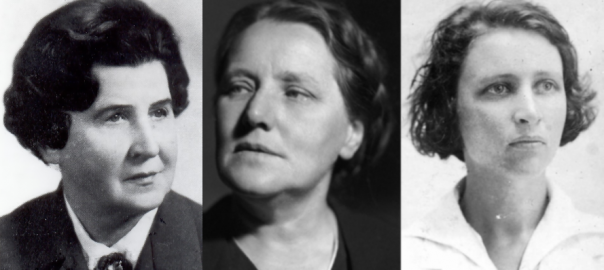Volume 5.5 of the Journal for the History of Analytical Philosophy (JHAP) is now online. This is a special issue entitled Gilbert Ryle, Intelligence, Practice, Skill, edited by Juliet Floyd and Lydia Patton.
It contains the following four articles:
1) “Volume Introduction: Gilbert Ryle on Propositions, Propositional Attitudes, and Theoretical Knowledge” by Julia Tanney
Abstract: In the introduction to the special volume, Gilbert Ryle: Intelligence, Practice and Skill, Julia Tanney introduces the contributions of Michael Kremer, Stina Bäckström and Martin Gustafsson, and Will Small, each of which indicates concern about the appropriation of Ryle’s distinction between knowing-how and knowing-that in seminal work in contemporary epistemology. Expressing agreement with the authors that something has gone awry in these borrowings from Ryle, Tanney takes this criticism to a deeper level. She argues that the very notion of content-bearing, causally-efficacious mental states, let alone representational states of knowledge-that or knowledge-how, embodies the very presuppositions that Ryle calls into question in his rejection of classical theories of meaning and his related warning of the type-errors involved in conflating rational and mechanistic explanation. That these mental posits are presupposed, unchallenged, in today’s debates make his arguments against intellectualism particularly difficult to discern.
2) “Ryle’s ‘Intellectualist Legend’ in Historical Context” by Michael Kremer
Abstract: Gilbert Ryle’s distinction between knowledge-how and knowledge-that emerged from his criticism of the “intellectualist legend” that to do something intelligently is “to do a bit of theory and then to do a bit of practice,” and became a philosophical commonplace in the second half of the last century. In this century Jason Stanley (initially with Timothy Williamson) has attacked Ryle’s distinction, arguing that “knowing-how is a species of knowing-that,” and accusing Ryle of setting up a straw man in his critique of “intellectualism.” Examining the use of the terms “intellectualism” and “anti-intellectualism” in the first half of the 20th century, in a wide-ranging debate in the social sciences as well as in philosophy, I show that Ryle was not criticizing a straw man, but a live historical position. In the context of this controversy, Ryle’s position represents a third way between “intellectualism” and “anti-intellectualism,” an option that has largely gone missing in the 21st century discussion. This argument illustrates how history can inform the history of philosophy, and how the history of philosophy can inform contemporary philosophical inquiry.
3) “Skill, Drill, and Intelligent Performance: Ryle and Intellectualism” by Stina Bäckström and Martin Gustafsson
Abstract: In this paper, we aim to show that a study of Gilbert Ryle’s work has much to contribute to the current debate between intellectualism and anti-intellectualism with respect to skill and know-how. According to Ryle, knowing how and skill are distinctive from and do not reduce to knowing that. What is often overlooked is that for Ryle this point is connected to the idea that the distinction between skill and mere habit is a category distinction, or a distinction in form. Criticizing the reading of Ryle presented by Jason Stanley, we argue that once the formal nature of Ryle’s investigation is recognized it becomes clear that his dispositional account is not an instance of reductionist behaviorism, and that his regress argument has a broader target than Stanley appears to recognize.
4) “Ryle on the Explanatory Role of Knowledge How” by Will Small
Abstract: Contemporary discussions of knowledge how typically focus on the question whether or not knowing how to do ϕ consists in propositional knowledge, and divide the field between intellectualists (who think that it does) and anti-intellectualists (who think that it does not, and that it consists instead in the possession of the ability to ϕ). This way of framing the issue is said to derive from Gilbert Ryle. I argue that this is a misreading of Ryle, whose primary interest in discussing knowledge how was not epistemological but rather action-theoretical, whose argument against intellectualism has for this reason been misunderstood and underestimated (by Jason Stanley, among others), and whose positive view aims to chart a middle course between intellectualism and anti-intellectualism.
JHAP is a free, open access journal. It is available at https://jhaponline.org. Submissions welcome.

